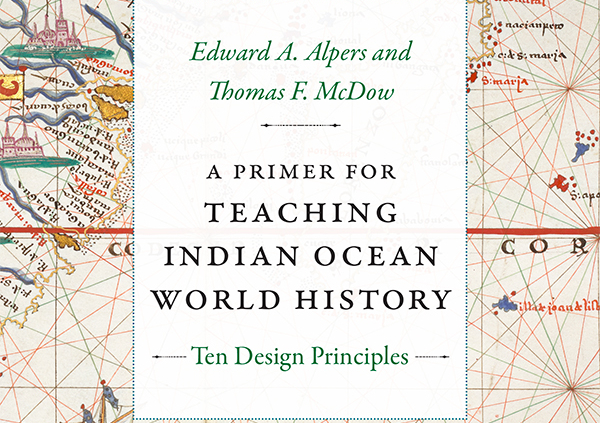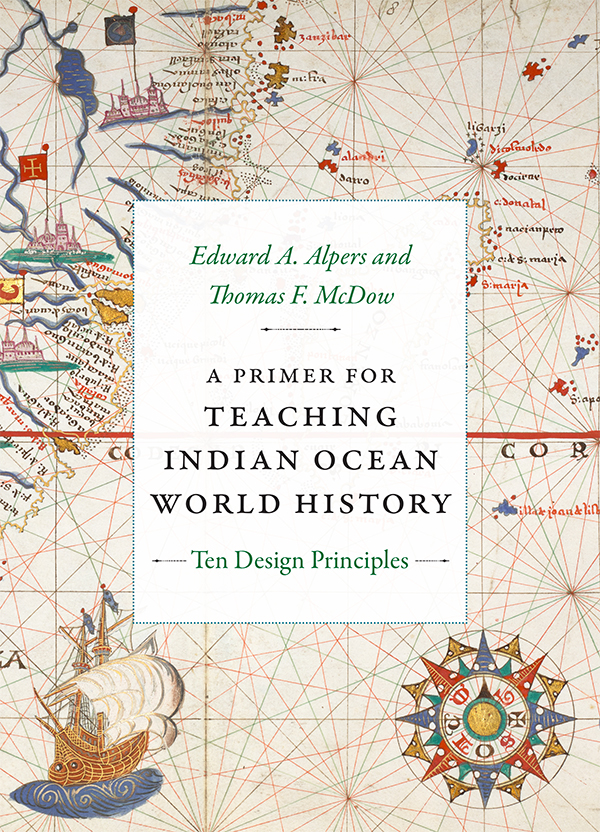A Primer for Teaching Indian Ocean World History: Ten Design Principles
Edward A. Alpers published a new book co-authored with Thomas F. McDow (The Ohio State University) with Duke University Press, titled A Primer for Teaching Indian Ocean World History.
A Primer for Teaching Indian Ocean World History is a guide for college and high school educators who are teaching Indian Ocean histories for the first time or who want to reinvigorate their courses. It can also serve those who are training future teachers to prepare their own syllabi as well as those who want to incorporate Indian Ocean histories into their world history courses. Edward A. Alpers and Thomas F. McDow offer course design principles that will help students navigate topics ranging from empire, geography, slavery, and trade to mobility, disease, and the environment. In addition to exploring non-European sources and diverse historical methodologies, they discuss classroom pedagogy and provide curriculum possibilities that will help instructors at any level enrich and deepen standard approaches to world history. Alpers and McDow draw readers into strategically designing courses that will challenge students to think critically about a vast area with which many of them are almost entirely unfamiliar.



